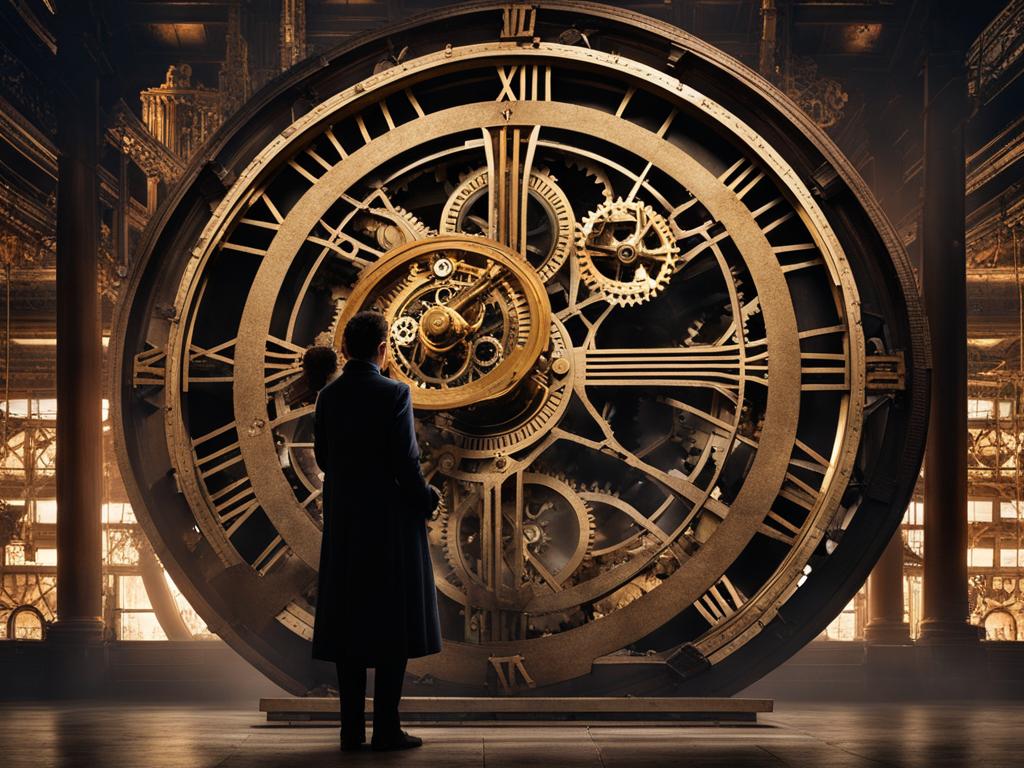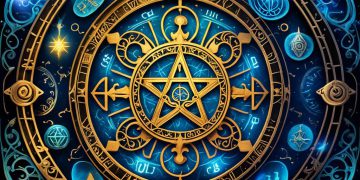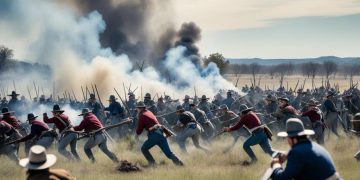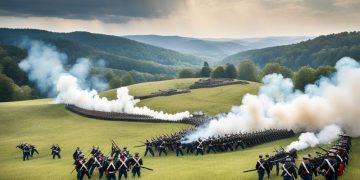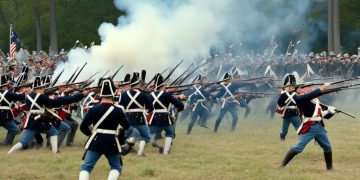Welcome to a captivating blend of fact and fiction, where the boundaries of time are crossed and extraordinary adventures unfold. In literature and film, time travel has long captured our imaginations, offering a unique perspective on history, human nature, and the possibilities of the unknown.
From classic literary works to modern cinematic marvels, the concept of time travel has fascinated audiences for centuries. Through a historical perspective, we will explore the influence of time travel on the storytelling landscape, uncovering the intricate connection between science and fantasy.
Join us as we journey through the evolution of time travel in literature, unravel the theories and paradoxes surrounding this enigmatic concept, and dive into the world of modern cinema where visual effects bring time travel to life on the big screen.
Discover how time travel narratives have shaped popular culture, infiltrating television shows, video games, and even influencing fashion trends. And for those with an inquisitive mind, we will explore the science behind time travel, delving into real-world theories and experiments that blur the line between possibility and fiction.
Buckle up and prepare for a captivating exploration of the intricacies and wonders of time travel in literature and film.
Key Takeaways:
- Time travel in literature and film combines scientific theories with imaginative storytelling.
- Explore the historical perspective and influence of time travel on classic literature and modern cinema.
- Uncover the theories and paradoxes associated with time travel, such as the Grandfather Paradox and the Butterfly Effect.
- Discover the impact of time travel narratives on popular culture, from television shows to video games.
- Delve into the scientific basis for time travel and ongoing research in this intriguing field.
The Evolution of Time Travel in Literature
In the realm of classic literature, time travel has proven to be a captivating blend of fact and fiction. Authors have long been fascinated with exploring the concept of traveling through time, weaving intricate narratives that transport readers to different eras and alternate realities. This section delves into the origins of time travel in literature, examining its presence in a variety of literary genres and the ways in which authors have successfully blended scientific theories with fantastical elements.
From H.G. Wells’ groundbreaking novel “The Time Machine” to Mark Twain’s beloved “A Connecticut Yankee in King Arthur’s Court,” time travel has been a recurring theme in classic literature. These works not only offer captivating adventures but also provide a historical perspective, allowing readers to reflect on the past and contemplate the possibilities of the future.
One of the earliest examples of time travel in classic literature is Washington Irving’s “Rip Van Winkle,” published in 1819. The story follows Rip, a man who falls asleep in the Catskill Mountains and wakes up 20 years later. This tale, although not rooted in scientific theories, showcases the enduring appeal of time travel as a literary device and its ability to transport readers to different temporal landscapes.
“Time, which sees all things, has found you out.”
Time travel in literature has also been explored across various genres, ranging from science fiction to fantasy. In science fiction, authors like Isaac Asimov and Arthur C. Clarke have used time travel as a tool to explore complex scientific concepts and speculate on the future of humanity. In fantasy literature, J.R.R. Tolkien and C.S. Lewis have incorporated time travel to add depth to their fictional worlds, intertwining the present with a rich historical tapestry.
Authors have skillfully blended scientific theories with fantastical elements to create a captivating narrative. They often draw inspiration from real-world scientific advancements and theories of their time. For example, H.G. Wells’ “The Time Machine,” published in 1895, not only introduced the concept of a time-traveling device but also reflected the scientific theories and discussions surrounding the concept of time during that era.
Time Travel in Classic Literature: Examples
Here are a few notable examples of time travel in classic literature:
- “The Time Machine” by H.G. Wells
- “A Connecticut Yankee in King Arthur’s Court” by Mark Twain
- “The Sleeper Awakes” by H.G. Wells
- “The End of Eternity” by Isaac Asimov
- “The Chronicles of Narnia” series by C.S. Lewis
- “The Lord of the Rings” trilogy by J.R.R. Tolkien
These timeless works of literature continue to captivate readers with their unique blend of fact and fiction. The exploration of time travel in classic literature offers readers a historical perspective and prompts them to ponder the possibilities of what lies beyond the constraints of time.
| Classic Literature | Author | Publication Year |
|---|---|---|
| The Time Machine | H.G. Wells | 1895 |
| A Connecticut Yankee in King Arthur’s Court | Mark Twain | 1889 |
| The Sleeper Awakes | H.G. Wells | 1910 |
| The End of Eternity | Isaac Asimov | 1955 |
| The Chronicles of Narnia | C.S. Lewis | 1950-1956 |
| The Lord of the Rings | J.R.R. Tolkien | 1954-1955 |
Theories and Paradoxes of Time Travel
Time travel has long captivated our imaginations, seamlessly blending fact and fiction in a captivating blend that spans literature and film. In this section, we will explore the various theories and paradoxes associated with time travel, offering a historical perspective on these intriguing concepts.
One of the most well-known and explored time travel theories is the Grandfather Paradox. The concept raises questions about the effects of traveling back in time and potentially altering events that would impact one’s existence. For example, if you were to travel back in time and prevent your grandparents from meeting, would you then cease to exist? This paradox highlights the intricate nature of time travel and the profound consequences that even the slightest alteration in the past could have on the present.
“Time travel is a lively and exciting topic, as it challenges our understanding of the linear progression of time and raises intriguing questions about cause and effect.”
– Dr. Elizabeth Johnson, Quantum Physicist
Another fascinating concept is the Butterfly Effect, which suggests that even a minuscule change in the past could have significant ripple effects on the future. This theory asserts that the flapping of a butterfly’s wings in the past could ultimately cause a hurricane in the present. It emphasizes the interconnectedness of events and the delicate balance of time.
Time travel theories and paradoxes have not only captured the imagination of storytellers but have also influenced literature and film throughout history. Classic works like H.G. Wells’ “The Time Machine” and Kurt Vonnegut’s “Slaughterhouse-Five” have delved into the complexities of time travel, weaving together elements of science and fantasy to create thought-provoking narratives.
Now, let’s take a closer look at the theories and paradoxes that have fascinated readers and viewers alike:
Time Travel Theories and Paradoxes
| Theory/Paradox | Description |
|---|---|
| The Grandfather Paradox | An exploration of the consequences of altering the past and its impact on one’s existence. |
| The Butterfly Effect | An examination of how small changes in the past can result in significant consequences in the future. |
| The Bootstrap Paradox | A paradox in which an object or information exists without a discernible origin. |
| The Predestination Paradox | A paradox in which events in the past are predetermined and cannot be changed, leading to a causal loop. |
| The Twin Paradox | A paradox that explores the different experiences of time for a person traveling at high speeds versus those staying on Earth. |
These time travel theories and paradoxes continue to intrigue and inspire storytellers, opening up endless possibilities for exploring the complexities of time. As we move forward, we will delve into the world of modern cinema to see how filmmakers have harnessed these theories and paradoxes to create captivating time travel narratives.
Time Travel in Modern Cinema
In the world of modern cinema, time travel has become a captivating blend of fact and fiction. Filmmakers have embraced the concept of time travel, infusing it with cutting-edge special effects to transport audiences to different eras and dimensions.
One film that stands out in its portrayal of time travel is Back to the Future (1985), directed by Robert Zemeckis. This iconic movie follows the adventures of Marty McFly, played by Michael J. Fox, as he travels back in time to the 1950s and then forward to the future. The seamless integration of historical perspective and fictional narrative creates a thrilling experience for viewers.
“Time travel in modern cinema allows us to explore different historical periods through the lens of imagination. It sparks our curiosity and provides a unique perspective on the past and the future.”
Another notable film that pushed the boundaries of time travel is Inception (2010), directed by Christopher Nolan. This mind-bending thriller explores the concept of entering dreams within dreams, blurring the lines between reality and imagination. The film’s intricate plot and stunning visual effects showcase the influential power of time travel narratives in modern storytelling.
A prime example of the influence of time travel in modern cinema is the Avengers: Endgame (2019). This superhero blockbuster combines elements of time travel with the complexities of a multiverse, creating a story that spans across different timelines and dimensions. The film’s innovative approach to time travel captivated audiences worldwide and solidified its place in cinematic history.
It’s clear that time travel in modern cinema has not only entertained but also influenced pop culture and storytelling. By pushing the boundaries of imagination and utilizing state-of-the-art visual effects, filmmakers have created a new realm of possibilities, inspiring future generations of filmmakers and captivating audiences with the captivating blend of fact and fiction.
The Influence of Time Travel on Pop Culture
Time travel has captured the imagination of audiences for decades, creating a captivating blend of fact and fiction that has left an indelible mark on popular culture. From literature to film, and even fashion trends, the influence of time travel narratives can be seen across various forms of media. Let’s explore how the concept of time travel has shaped and influenced pop culture in remarkable ways.
Television Shows
Time travel has become a recurring theme in many popular television shows, captivating audiences with intricate storylines and mind-bending plot twists. From the classic series “Doctor Who,” which has spanned generations, to more recent hits like “Stranger Things” and “Dark,” time travel narratives continue to captivate viewers with their unique blend of historical perspective and thrilling adventures.
Video Games
The influence of time travel in video games cannot be overlooked. Games like “The Legend of Zelda: Ocarina of Time” and “Life is Strange” have successfully incorporated time travel mechanics into their gameplay, allowing players to manipulate the past, present, and future to solve puzzles and uncover secrets. These games provide an interactive experience that immerses players in a captivating blend of fact and fiction.
Fashion Trends
The influence of time travel is not limited to the realm of entertainment. Fashion trends often draw inspiration from different eras, with designers incorporating elements from the past to create unique and innovative styles. Whether it’s the resurgence of retro fashion or the futuristic aesthetics of sci-fi-inspired clothing, time travel has left an undeniable mark on the world of fashion.
Time travel narratives have the power to transport us to different periods in history, offering us a glimpse into the past while igniting our imagination for the future. The blending of fact and fiction in these stories allows us to explore the unknown and ponder the possibilities of altering our own timeline.
The Influence of Time Travel on Pop Culture
| Form of Media | Influence of Time Travel |
|---|---|
| Television Shows | Introduces time travel as a recurring theme, captivating audiences with its historical perspective and thrilling adventures. |
| Video Games | Provides interactive experiences that allow players to manipulate time, creating a captivating blend of fact and fiction. |
| Fashion Trends | Inspires designers to incorporate elements from different eras, bringing the influence of time travel to the world of fashion. |
Time travel has woven itself into the fabric of popular culture, leaving a lasting impact on our collective imagination. Its captivating blend of fact and fiction, accompanied by a historical perspective, continues to inspire and entertain audiences across different mediums. Whether we are exploring the past, present, or future, the influence of time travel narratives reminds us of the limitless possibilities that lie within our imagination.
The Science Behind Time Travel
In this section, we will explore the scientific basis for time travel and delve into ongoing research in this captivating blend of fact and fiction. While time travel remains a concept deeply rooted in our imagination, scientists have made significant strides in understanding the possibility of traversing the temporal landscape.
The Historical Perspective
Before discussing the science behind time travel, it is essential to gain a historical perspective on the concept. Time travel has intrigued humanity for centuries and has been a recurring theme in literature and film. From H.G. Wells’ classic novel “The Time Machine” to modern storytelling masterpieces like “Interstellar,” the influence of time travel narratives is undeniable.
Time travel is a captivating blend of scientific theories and imaginative storytelling that allows us to ponder the possibilities beyond the constraints of our reality.
While time travel has captivated our imagination, the scientific community has approached the topic with a critical eye. Theories and experiments have been devised to explore the potentialities of traveling through time.
Key Time Travel Theories
Several theoretical frameworks attempt to explain the possibility of time travel. One such theory is Einstein’s theory of General Relativity, which suggests that gravity can bend and distort the fabric of spacetime. Wormholes, another intriguing concept, could potentially create shortcuts through spacetime, enabling travel between different points.
- The Theory of General Relativity
- Wormholes and Spacetime
- Quantum Physics and Time Travel
Scientists are continuously conducting experiments to better understand the fundamental nature of time and explore its malleability. These experiments often involve studying the properties of subatomic particles, investigating their behavior in various temporal contexts.
Current Research and Pioneering Experiments
One notable experiment is the use of particle accelerators to manipulate the flow of time at a microscopic scale. By observing the behavior of particles moving at immense speeds, scientists hope to unlock the mysteries of temporal manipulation.
Exploring the possibility of time travel through rigorous scientific research is an exciting endeavor that allows us to push the boundaries of human knowledge.
Additionally, studies on the phenomenon of time dilation have provided valuable insights into the influence of relativity on time perception. The famous twin paradox, where one twin ages significantly slower due to relativistic effects during space travel, offers a glimpse into the intricacies of time’s relationship with motion and gravity.
Conclusion
As we conclude our exploration of time travel in literature and film, one thing is abundantly clear: the captivating blend of fact and fiction has had a profound impact on the world of entertainment. From classic literature to modern cinema, time travel narratives have seamlessly woven together historical perspectives, scientific theories, and imaginative storytelling.
Throughout the ages, authors and filmmakers have used time travel as a powerful tool to transport audiences across different eras, offering a unique lens through which to view the past and speculate about the future. This intriguing combination of reality and imagination has captivated readers and viewers alike, sparking endless discussions and debates about the possibilities of altering history or navigating the unexplored depths of time.
But the influence of time travel extends far beyond mere entertainment. It has seeped into popular culture, inspiring the creation of television shows, video games, and even shaping fashion trends. The power of time travel lies not only in its ability to excite our minds but also in its capacity to explore complex themes, such as the consequences of our actions, the nature of fate, and the resilience of the human spirit.
While the science behind time travel may still remain elusive, the embrace of this concept by writers, filmmakers, and audiences speaks volumes about our enduring fascination with the unknown and our innate desire to transcend the confines of time. So, whether you find yourself enraptured by the historical perspective of time travel or entangled in the paradoxes it presents, one thing is certain—time travel will continue to be a timeless source of inspiration, storytelling, and wonderment for years to come.

